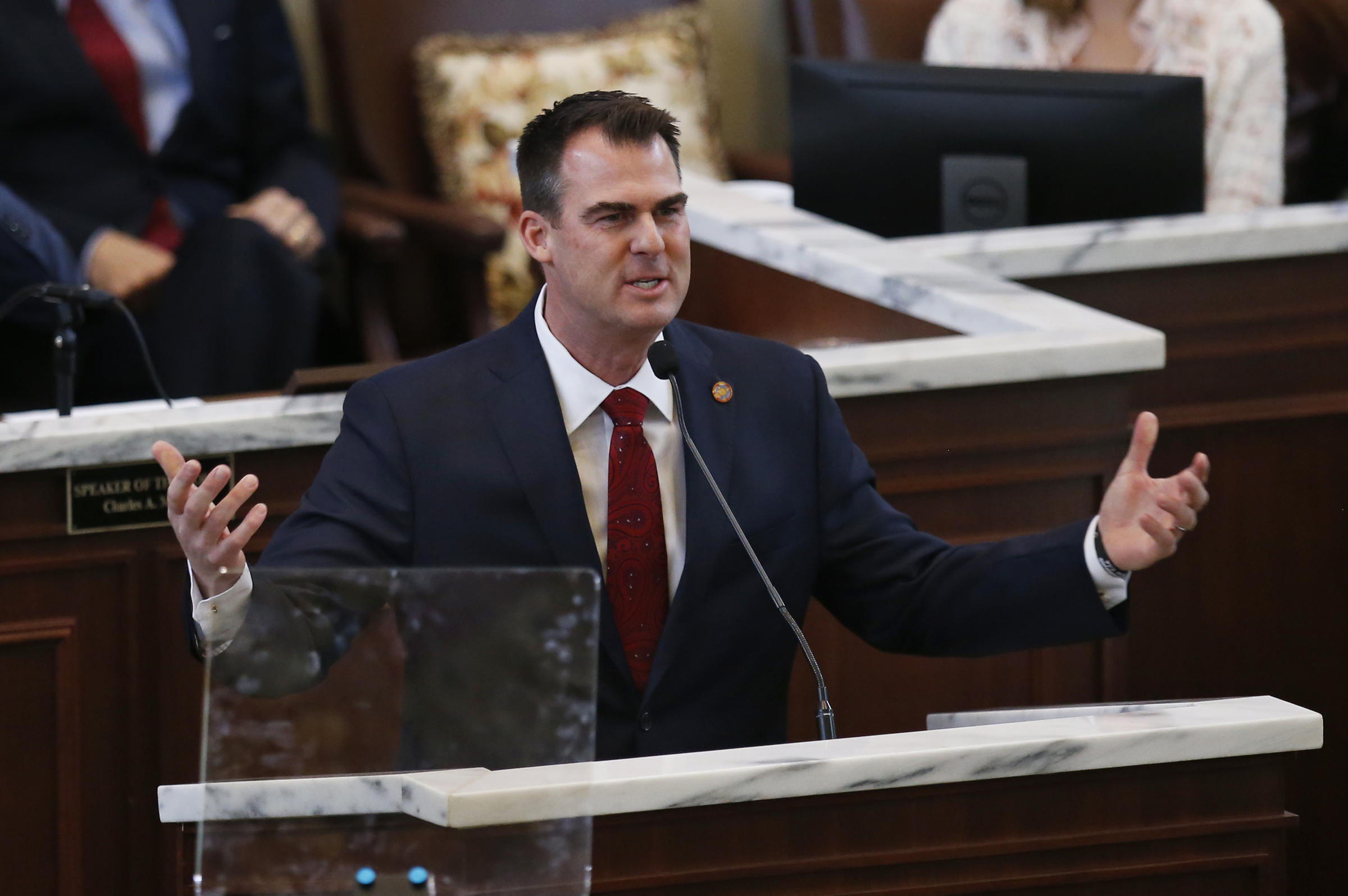Oklahoma Gov. Stitt Demands Tribes Sign Compact Extension or Casinos Will Break Law in 2020
Posted on: December 19, 2019, 02:14h.
Last updated on: December 19, 2019, 02:40h.
Oklahoma Governor Kevin Stitt has offered the state’s tribal operators an extension to their gaming compacts beyond the January 1 expiry deadline. The move is part of his continued attempt to renegotiate casino revenue-share payments.

The governor has said unless the tribes sign an extension agreement, they will be breaking the law next year by offering class III gaming – which includes slots and table games.
“To protect all the hard-working Oklahomans and the tribal members who are employed at more than 100 casinos across our great state, I am announcing today that the state of Oklahoma will be requesting tribal leaders to join me in signing an extension to the gaming compact,” Stitt said at a news conference in Oklahoma City, as reported by Tusla World.
“The language in this extension will allow each side who signs the extension to retain their legal position,” he added. “…The state will make a generous offer with this extension and not ask for anything in return.”
Not OK
But the tribes are unlikely to put pen to paper. They believe their compacts roll over on January 1 and that the law backs them up. Signing an extension agreement would be tantamount to acknowledging the contrary legal argument.
They say they plan to continue normal operations on January 1 and are preparing for legal action if necessary.
Stitt blindsided the tribes when he wrote in a Tulsa World op-ed in July of his intention to squeeze more money out of the compacts. He said his opinion was that the agreements do not automatically roll over beyond their first term.
Some tribes have indicated that they are open to renegotiating their revenue-share percentages, but first, they want Stitt to acknowledge that the compacts auto-renew.
The tribes pay four to six percent of their revenues from slots, depending on the size of the operation, and ten percent on games like craps and roulette. This totaled $138.6 million last year.
Stitt Takes the Lead
But Stitt believes the $2.3 billion tribal gaming market has it too easy. He wants negotiations to start at 25 percent, but operators complain he has offered nothing in return.
Earlier this week, Oklahoma AG Mike Hunter withdrew from talks to hand Stitt the role of lead negotiator. So far, Oklahoma Indian Gaming Association Chairman Matt Morgan is unimpressed. He told The Associated Press he was “disappointed” with the governor.
“Tribal leadership has been clear from the beginning — if he acknowledges auto-renewal, we’ll sit down and negotiate with him. But clearly he does not want to do that,” Morgan said.
“I had hoped to see better leadership from him on this issue.”
Last Comments ( 5 )
don't give in brothers. How dare this greedy throwback. Is this the 1800's or what? ...I think I can get a better deal. How Trump-like.
Stitt is a typical politician. The government moved the Indians to what they thought was worthless land. When oil was discovered, the politicians took it. When it was only bingo, the politicians didn’t care. Now that it’s worth billions, politicians want to take it. Don’t give politicians ANYTHING. They will take it all. They’re greedy
Asking 25% of 2.3 Billion is not unfair at all. They should just agree to it and make the state lock it down permanently, instead of a rolling license year to year.
You’re trying to makeup the shortfalls of the Oklahoma Oi͏l Industry, lm fr͏o͏m Rodgermils county, I don’t know what state you come from, but you are going to cause a my state of Oklahoma to receive nothing. They have the Dept of Interior on the side of Oklahoma Indian Tribes. Governor Stitt, you Are Wrong, and you think you can bully the Oklahoma Indian tribes, you best think again... You just lost The Best person to represent Oklahoma Indian Tribes, and the State of Oklahoma... Rep,Lisa Billy has forgotten more about Tribal rulings and Laws pertaining to Tribal Affaires than you will ever know...Don’t bully our Indians here in Oklahoma....what the hell is wrong with you fella? Mike Nunn JbarN Ranch .......
Have you not talen enpugh Governor? Leave the tribes alone